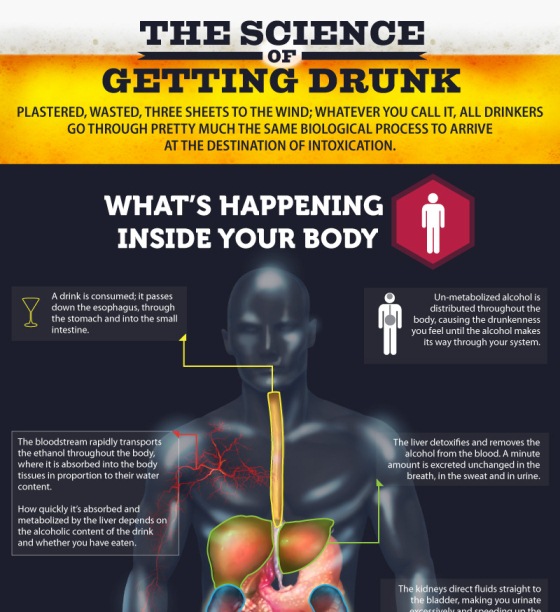Unravel the mystery of drunkenness by exploring the science behind alcohol consumption. How many beers does it really take?

Image courtesy of Anete Lusina via Pexels
Table of Contents
Have you ever found yourself wondering, “How many beers does it take to get drunk?” Whether you’re a seasoned drinker or new to alcohol consumption, understanding the science behind intoxication is crucial for making informed decisions about your alcohol consumption. In this blog post, we will delve deep into the factors that influence how drunk you get, beyond just the number of beers you drink. Let’s explore the intricate relationship between alcohol metabolism, individual tolerance levels, and various factors that can affect your level of intoxication.
Alcohol Metabolism: Breaking Down the Science
Alcohol metabolism is a complex process that occurs in the body after you consume alcoholic beverages. When you drink alcohol, it is absorbed into your bloodstream through the stomach and small intestine. The primary enzyme responsible for breaking down alcohol in the liver is called alcohol dehydrogenase.
Factors such as age, gender, weight, and genetics can all play a role in how efficiently your body metabolizes alcohol. Younger individuals tend to metabolize alcohol faster than older individuals, as alcohol dehydrogenase activity decreases with age. Additionally, men typically have higher levels of alcohol dehydrogenase compared to women, which can affect how quickly they process alcohol. Weight can also impact alcohol metabolism, as individuals with higher body fat percentages tend to feel the effects of alcohol more slowly than those with lower body fat percentages. Genetic variations in alcohol dehydrogenase can also influence how quickly or slowly someone metabolizes alcohol.
Individual Tolerance Levels: Why Some People Get Drunk Faster Than Others
Individual tolerance levels to alcohol can vary significantly from person to person. Tolerance to alcohol is influenced by several factors, including regular alcohol consumption and genetic predisposition. As individuals drink alcohol regularly, their bodies can adapt to the effects of alcohol, leading to an increased tolerance over time.
Genetic factors can also play a role in determining an individual’s tolerance to alcohol. Some people may have genetic variations that impact how their bodies respond to alcohol, leading to differences in how quickly they become drunk. Liver function and overall health can also affect tolerance levels, as individuals with liver damage or certain medical conditions may be more sensitive to the effects of alcohol.
Factors Influencing Intoxication: Beyond Just the Number of Beers
While the number of beers you consume certainly plays a role in how drunk you get, there are many other factors that can influence your level of intoxication. One of the key factors is food intake. Eating a meal before drinking alcohol can help slow down the absorption of alcohol into your bloodstream, reducing the likelihood of getting drunk quickly.

Image courtesy of www.infographicszone.com via Google Images
Hydration is another important factor to consider when it comes to alcohol consumption. Staying hydrated can help your body process alcohol more efficiently and reduce the likelihood of experiencing severe intoxication. Additionally, mixing different types of alcohol or consuming drinks with higher alcohol content can also impact how drunk you feel, as these factors can influence the rate at which alcohol is metabolized in your body.
Conclusion
Understanding the science behind alcohol intoxication is essential for making informed decisions about your alcohol consumption. Factors such as alcohol metabolism, individual tolerance levels, and various influencing factors can all play a role in determining how drunk you get after consuming alcohol. By being aware of these factors and drinking responsibly, you can enjoy alcohol in a safe and controlled manner.
Next time you find yourself wondering, “How many beers does it take to get drunk?” remember that the answer is not as simple as a specific number. Instead, consider the science behind drunkenness and how various factors can influence your level of intoxication. Drink responsibly, know your limits, and prioritize your safety and well-being when consuming alcohol.
FAQ:
How does alcohol metabolism impact how drunk you get?
Answer 1: Alcohol metabolism in the liver affects how quickly your body processes alcohol. Factors like age, gender, weight, and genetics influence how efficiently alcohol is broken down and can impact your level of intoxication.
Why do some people get drunk faster than others?
Answer 2: Individual tolerance levels vary due to factors like regular alcohol consumption, genetic predisposition, liver function, and overall health. These differences can affect how quickly someone feels the effects of alcohol.
What factors besides the number of beers consumed can influence intoxication?
Answer 3: Besides the number of drinks, factors like food intake, hydration levels, alcohol content, and types of beverages can impact how drunk you feel. Eating before drinking, staying hydrated, and avoiding mixing alcohols can all play a role.
How can individuals drink responsibly and stay safe while consuming alcohol?
Answer 4: To drink responsibly, individuals should understand their limits, be aware of influencing factors, stay hydrated, eat before drinking, and avoid excessive alcohol consumption. Prioritizing safety, knowing when to stop, and being mindful of how alcohol affects them can help individuals stay safe while enjoying drinks.
Generated by Texta.ai Blog Automation
Leave a Reply